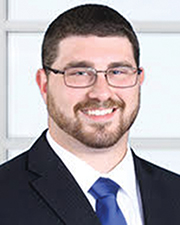
Robinson + Cole
Any veteran of the design and construction industry can tell you that the technologies employed in planning and building the latest and greatest construction projects are ever-changing, and it can be a dizzying endeavor to stay on top of the latest trends. While technological trends were historically centered upon the actual materials used in the construction process itself – like the replacement of plaster by drywall as a common wall covering or the more recent emergence of cross-laminated timber as an option for high-rise construction – more modern technology trends are driven by the ability of digital technologies to increase the efficiency of the construction process and buildings themselves.
As Louis Manzione, PhD, former dean of the College of Engineering, Technology and Architecture at the University of Hartford, recently wrote for the Construction Institute in its first book, The Future of the Design and Construction Industry, the Internet of Things (IoT) is the next wave of the Internet and it will have a profound influence on a number of industries, including our own. Broadly, the phrase “Internet of Things” describes the interconnection over the internet of computing devices embedded in everyday objects, enabling them to send and receive data. You may have encountered IoT-connected devices in the form of so-called “smart” devices like televisions, thermostats, lights, alarm clocks, and even cars.
In the context of improving the construction process and the functionality of the finished product – buildings – the IoT will have the largest impact where the highest cost savings or productivity increases can be realized through automation or the streamlining of processes and gathering data. One obvious application is energy management in heating and cooling systems. As Dr. Manzione notes in his article, the heating and cooling of buildings consumes close to one third of energy in the United States. Accordingly, increasing the efficiency of the energy expended in heating and cooling a building by focusing climate control efforts on areas where people are actually present could generate huge energy costs savings in everything from small residential settings to corporate office complexes and warehouses. The IoT comes into play by connecting people to their thermostats – the most sophisticated commercially available IoT temperature control devices can read building occupants’ online calendars, learn where and when major meetings are being held, determine where individuals are located within a building, accommodate external weather patterns, and, as a result, make highly informed decisions on temperature control settings to maximize the efficiency of energy consumption.
The tech entrepreneurs adopting IoT in building technologies in new and exciting ways are not just in Silicon Valley, they are right here in Hartford. UpwardLabs is a Connecticut-based venture fund supporting new IoT entrepreneurs in developing and bringing their ideas to market. Security management, access control, predictive maintenance, and remote diagnostics are a few of the applications supported by UpwardLabs at their PropTechLab.
Here are some examples of their current start-ups:
SAYA is a firm focused on water and is developing a machine learning and AI platform focused on managing water-related risks. They’ve developed a set of connected IoT monitoring devices which can do everything from track water usage like a traditional water meter to automatically monitor and send alerts about irregular usage patterns or leaks and remotely manage or shut off flow.
Aura Air is developing an IoT enabled air purification and monitoring system which cleans and disinfects indoor air while monitoring its quality in real-time. Through an array of IoT-connected sensors, Aura Air’s systems provide building owners with constant air quality reports, enabling them to adjust air treatment settings and monitor for harmful conditions like smoke and carbon monoxide without the need to rely on listening for the beeping alarm of a traditional air monitor.
In recent decades, technology has increasingly impacted the design and construction industry and continues to inform our processes. As we educate ourselves to keep up with the latest emerging trends, it is exciting to think of the ingenuity happening right here in our own city of Hartford.
Niel Franzese is an attorney with Robinson + Cole, Hartford, Conn.








